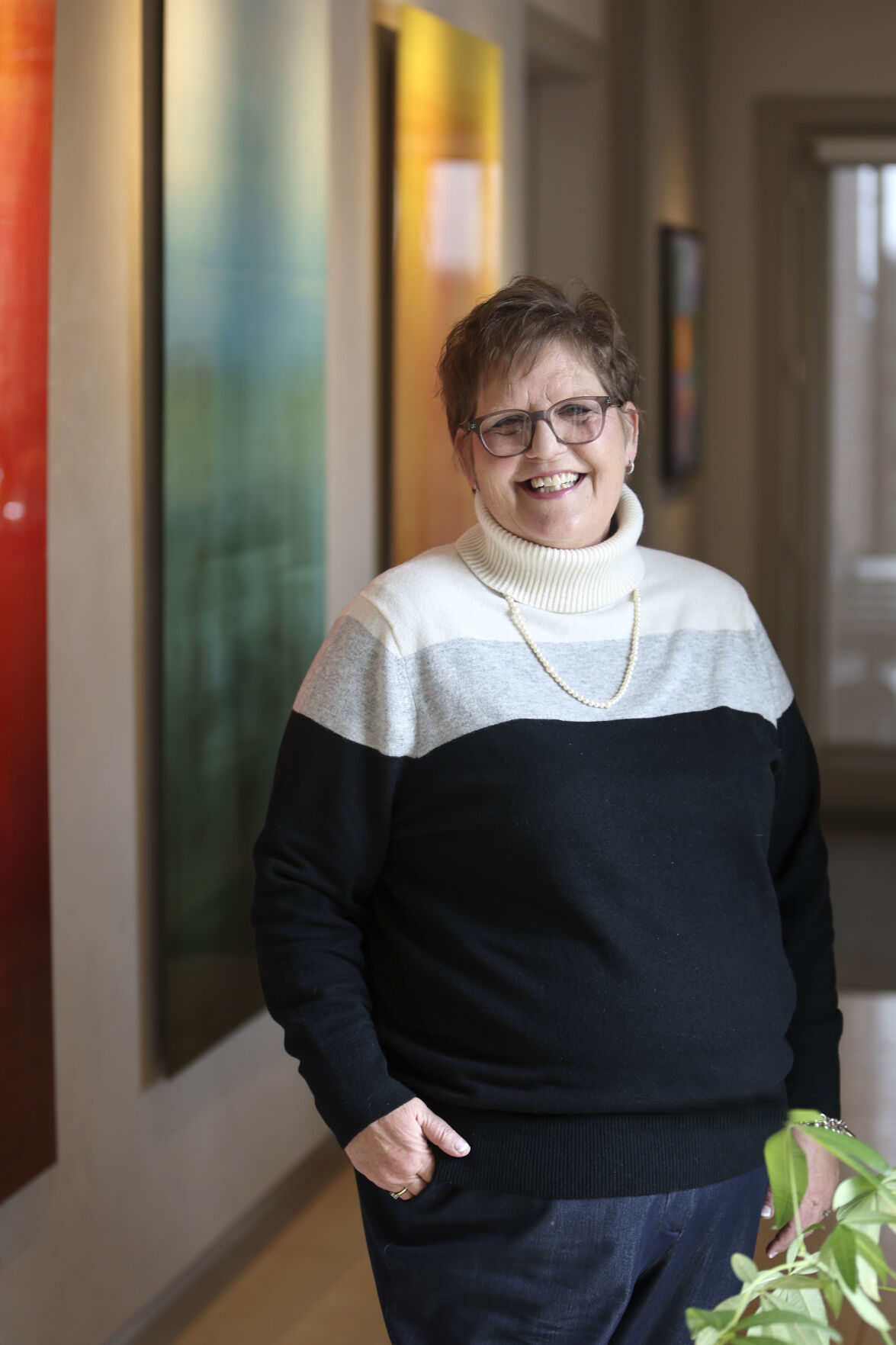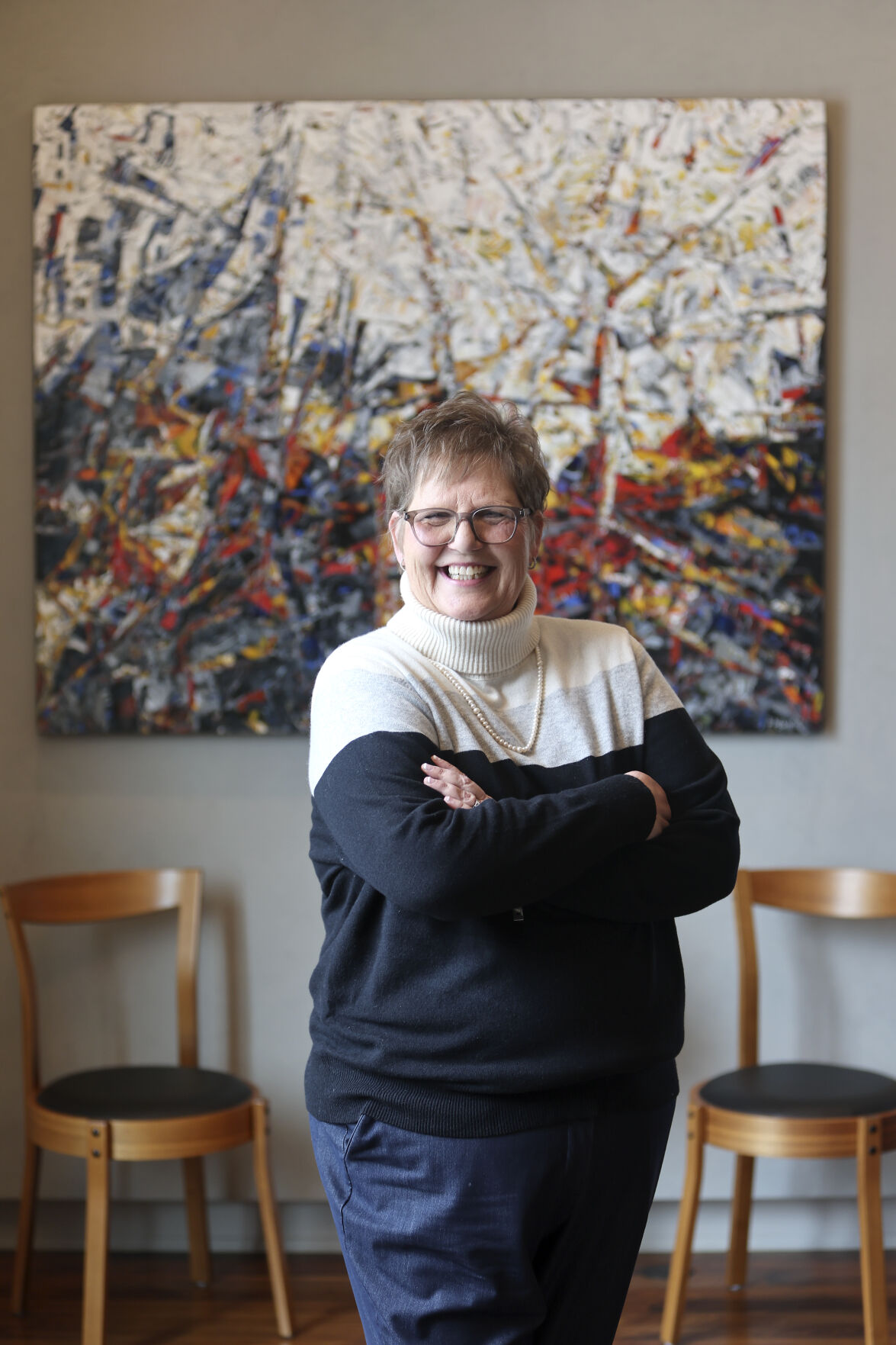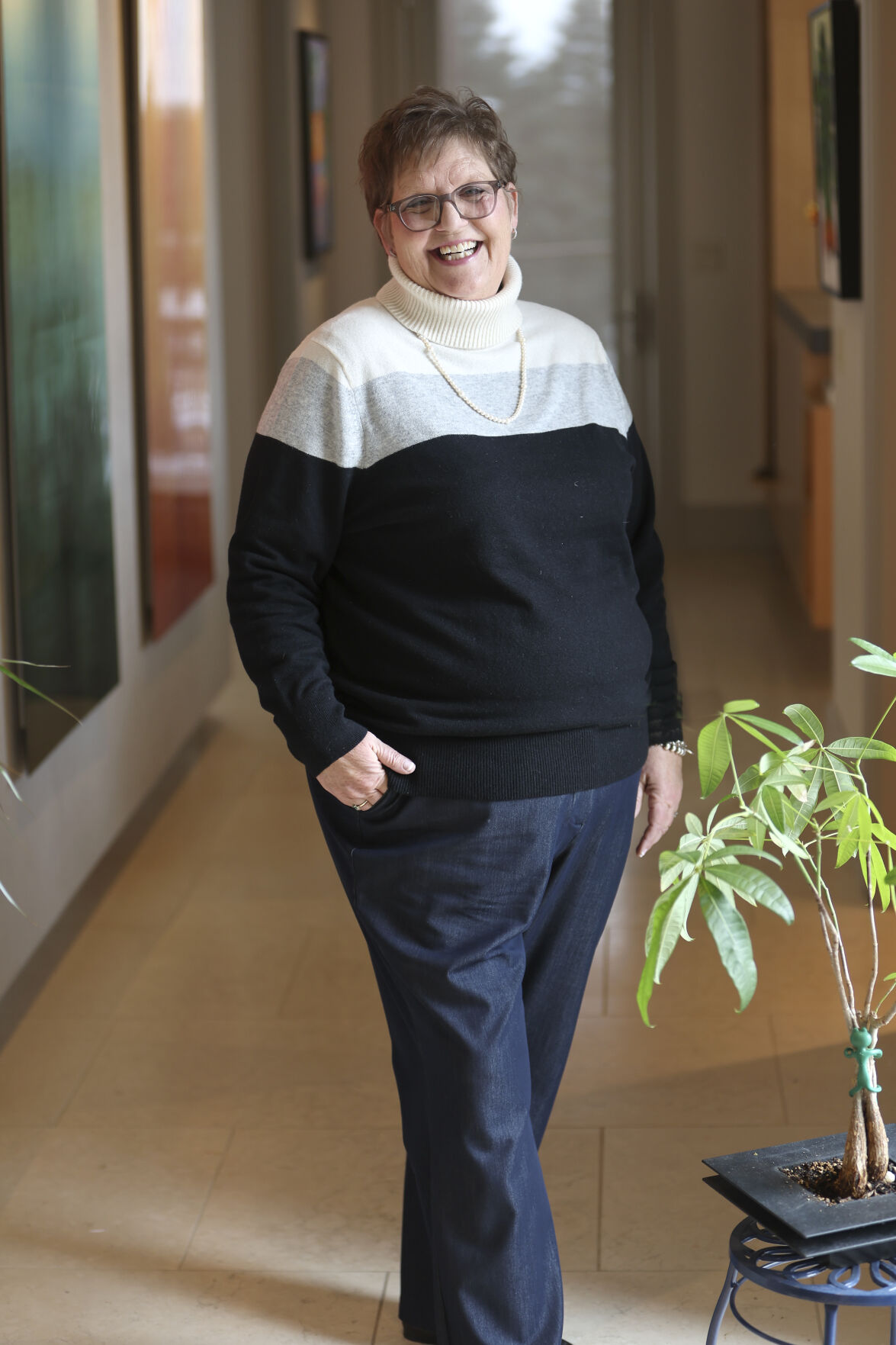Carrie Tedore is the chief operating officer at a pre-revenue health care start-up, ful. HSA. She has worked in strategic communications for national brands, large privately held enterprises, small family-owned businesses and publicly traded companies.
An active member of the community, she has volunteered on special projects with Dubuque Main Street, Carnegie-Stout Public Library, Dubuque Arts Council and more. She also serves as a director for United Way of the Tri-States Dubuque.
Her husband, Scott Tedore, is software engineer at A.Y McDonald, and her son, Bobby, is a freshman at Northeast Iowa Community College.
Tell us about your field and what attracted you to it.
My interest in strategic communication and marketing started early in life. As a young child, I watched commercials on TV more attentively than the show or the game and read each of the print ads in papers and magazines. Often, I fixed the ad, and as I grew older, I thought about why particular ads were placed where they were and what I could infer about the audience the advertiser was attempting to reach. I’m kind of a “wonk” in that regard, learning what to do and what not to do by scrutinizing companies’ ad content and placement.
How has your field changed in the time you’ve worked in it? How have you adapted? Early in my career, data became much easier to harness, and that opened up a whole new world of accountability, insight and a more efficient path to managing business results. Data gives us the ability to better understand market fit, stratify prospects and personas, to deliver and test more personalized communications toward better outcomes. Data makes brands stronger, and I use it almost every day.
AI is currently transforming the field, providing a new tool for business. I use it to get my thoughts organized, to clean up content or refresh old content for a new audience. I don’t believe AI will replace professional communicators, as it is only as good as the requests that are made, and the draft of content submitted. Typically, it saves some time but at this moment, it is not suited to produce final content and I am convinced it might never be.
Is there a person or people who have had a tremendous impact on you? Many people have helped me become the professional I am today. Jonathan Swain and Natalie Schramm both contributed greatly to my professional success. I worked with Jonathan and Natalie as Peninsula Gaming became the fastest growing privately held casino company in the U.S.
There was a lot of work to do, and they afforded me a lot of opportunities to contribute to the company’s success. Natalie, through her leadership, taught me that everything is possible when you prioritize people. Her leadership style made it fun to work really hard. It was Jonathan who taught me “what gets measured gets managed,” a mantra that keeps me focused on results.
I consider myself lucky to work with such accomplished leaders who achieved so much and never took themselves too seriously. I also learned from an analyst at Jefferies who sometimes said, “We make our own luck.” I think of that often and that simple phrase keeps me driven to deliver my best work, every time.
Do you have any advice for young people and/or new graduates? You’re never finished learning. Now, the world is your new classroom. With no syllabus, it’s an exciting time to chart your own course. All of that can be a little overwhelming. But if you choose to learn more, you can do more. Ask questions and actively listen. Look for people at work and in the community from whom you would like to learn. When possible, accept or seek opportunities to work as part of a team with people from your field as well as those in different fields. It’s a good way to learn from others’ perspective and experience. It will provide better understanding of the integral role you can play in an organization’s success. Work hard to bring value.
What have you found to be the most valuable resource for learning? Are you an on-the-job learner or do you prefer another way? I learn something from nearly everyone I meet. Because I am results driven, I prefer to apply strategy to current business objectives and so, I would consider myself an on-the-job learner.
Math vs. creativity. People person vs. introvert. Slow and steady vs. quick and nimble. Where do you fall on those divides? Do you believe there even is a divide? I am 100% a people person. I am a fan of collaborating with teams and partners. My experience allows me to be quick and nimble, but my Gallop Top Strengths include Responsibility and Learner, so when opportunity presents itself, I am inclined to slow down and learn more before executing. When I consider Math vs. Creativity, I do not see a divide. I rely on data to do my job well, and when I consider winning strategies, they are always about an even mix of applied math and creativity.
When you think of the future, what kind of changes would you like to see in your field? In the broader world? Changes in strategic communication are constant. I see owned media (especially social media) and AI at the center of most of the near-term changes. I’d like to think those changes are going to help consumers as well as the professionals who are tasked to attract those most likely to buy.
In the broader world, at ful. HSA I am working toward fixing health care for the better. U.S. health care is broken, riddled with waste and the situation is dire. There are a lot of disrupters in health care, but I believe that ful. founder and CEO, Dr. Bernie Saks, has come up with a winning equation.
His public policy work from almost two decades ago, sought to help employers and their plan members decentralize health plan spending and reward plan members while reducing claims costs. Today, with transparency in coverage laws and the availability of health claims cost pricing data at ful., we’re using big data and technology to make it easy for plan members to become engaged in their personal health and financial well-being. It is an extremely exciting time to be part of the solution to one of our nation’s biggest challenges.
How do you strike a work/life balance? Years ago, I was working 14 to 18 hour days in a role that I loved. I didn’t have time to do much else besides work. Unknowingly, I kind of lost sight of my personal life. But I was lucky to have supportive friends and family. I worked with a professional coach who quickly taught me to flex my “no muscle.”
Today, I am working for a pre-revenue start-up and I have the best work-life balance of my entire career. That is because now I can prioritize and look forward to time with family and friends simply by saying no to things that do not help me meet my professional and personal goals. Don’t get me wrong, not every opportunity is so cut and dry. But I have gotten better at determining what’s important to me.




